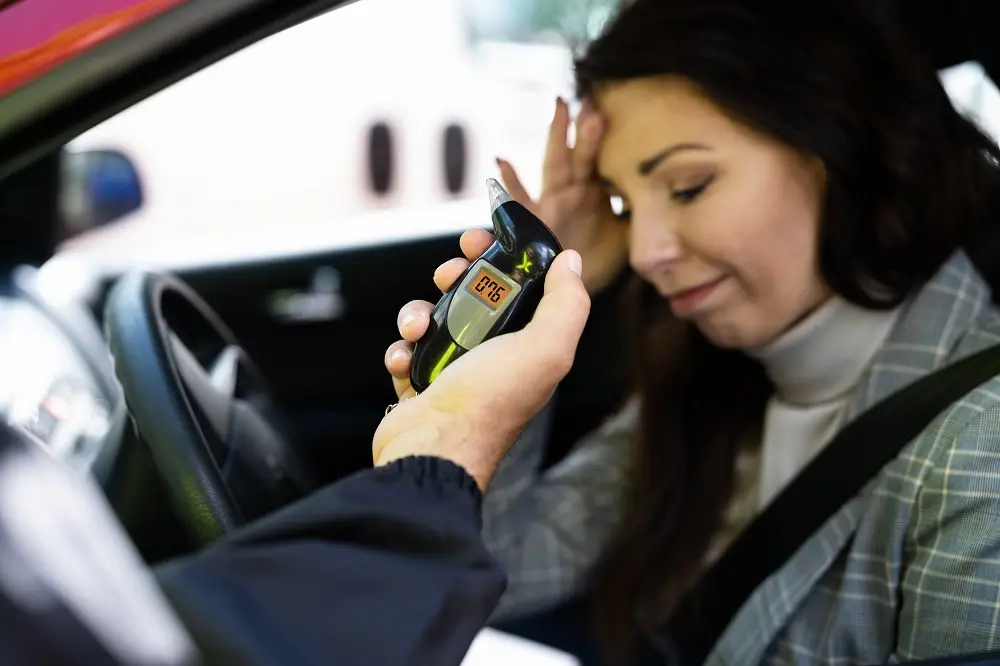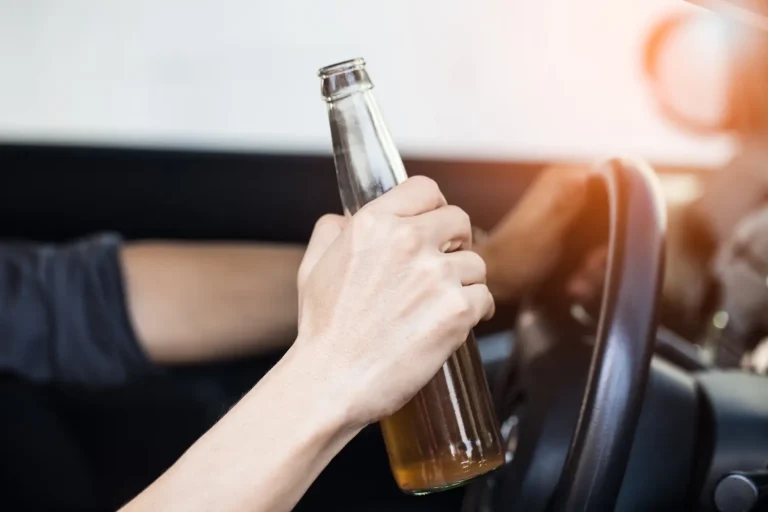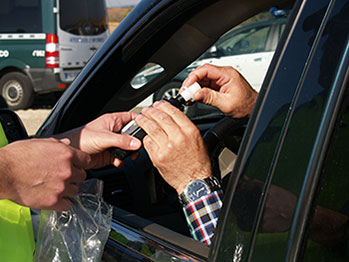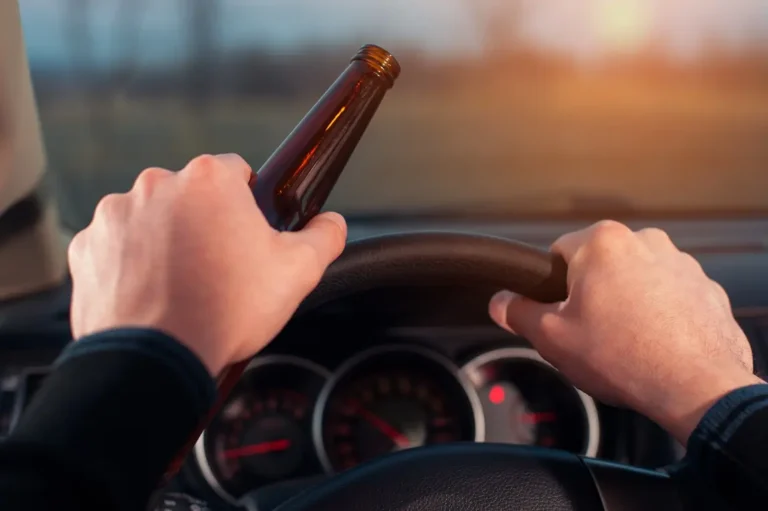Ohio State seeks stiff criminal penalties and fines against those charged with impaired driving offenses. However, there is some confusion about the various acronyms used to describe the act of operating a vehicle while using drugs or alcohol. DUI, DWI, OVI, and OMVI — is there a difference?
If you are facing an OVI charge but are unsure about what to do next, reach out to the experienced Dayton OVI attorneys at Gounaris Abboud for a robust defense.
What Does OVI Stand for? The History of the Term
The term OVI stands for operating a vehicle while impaired. Originally, the charge was known as DUI and DWI — driving under the influence and driving while intoxicated. However, prosecutors in the early ’80s abandoned the term, and a new one was put in place: OMVI (operating a motor vehicle while intoxicated).
However, in the early 2000s, the state decided that a vehicle need not be motorized for a person to face a charge of operating a motor vehicle while impaired. So the name of the charge changed once again to what it is today: OVI, which allows the state broad latitude when processing offenders.
What Is an OVI in Ohio Law?
The OVI law in Ohio prohibits and punishes the operation of a vehicle while impaired by drugs, alcohol, or both. Within its provisions, the OVI law establishes blood, serum, and plasma concentration thresholds that determine an individual’s culpability based on the substance they have ingested.
Because OVI is a serious offense in Ohio, offenders who are convicted can face significant penalties.
Even first-time offenders must contend with serious criminal consequences, such as:
- Mandatory three days of jail time;
- Fines of up to $1,075;
- License suspension of up to three years.
Having a prior drunk driving record exacerbates the judgment you receive.
What Is Impaired Driving According to Ohio Law?

The following examples are all instances of impaired driving in Ohio:
- Breath or blood alcohol content at .08 or greater;
- Urine alcohol content at .11 or higher;
- Blood serum or plasma alcohol content at .096 or higher;
- Marijuana blood concentration at or above 2 nanograms per milliliter;
- Marijuana urine concentration at 10 nanograms per milliliter.
Keep in mind that a person can still be considered impaired even if they have blood, urine, plasma, or serum levels below each legal limit listed above.
Understanding DUI, DWI, OVI, and OMVI in Ohio
If you are still unsure about OVI’s meaning, it may be helpful for you to consider the other acronyms that were once used to prosecute these types of crimes in Ohio. Due to confusion and other issues, these past terms were changed or dropped to make way for the current acronym and manifestation of the law, which is OVI.
Driving While Intoxicated (DWI)
This term gave prosecutors problems because they had the burden of proving intoxication, that drugs or alcohol had in fact diminished the driver’s ability to operate a motor vehicle.
The term “driving” also caused problems for the state because it required prosecutors to prove that the defendant was actually driving. But many who are caught impaired while in their cars are not driving at the time and proving that they had indeed driven before was a difficult burden for prosecutors. So the term was changed from “driving” to “operating”.
Operating a Motor Vehicle Impaired (OMVI)
To deal with the problems caused by the terms “driving” and “intoxicated”, the legislature changed these terms to “operating” and “impaired”. With these changes, prosecutors no longer had to prove intoxication or that the driver was driving.
For example, previously, a person who was drunk but not driving could elude prosecution. However, with the new law, the prosecutor need only prove that the defendant was inside the vehicle impaired and operating one of the vehicle’s systems, such as the radio.
Driving Under the Influence (DUI)
The term DUI has never been an official charge in Ohio. However, because of the wide use of the term, it is often used as a general, synonymous term for OVI. In fact, it is not uncommon to hear police, prosecutors, and other officials using the term DUI to refer to the charge of OVI. However, there is no driving requirement in Ohio.
Operating a Vehicle Impaired (OVI)
OVI is now the official DUI offense in Ohio. As you can see, the term “motorized” has been removed. Because of this, prosecutors have an easier time winning convictions than before, when they had to prove that a defendant was actually driving or had driven while impaired.
What Are the Penalties for an OVI or DUI in Ohio?

The penalty for OVI can be harsh and depends heavily on the circumstances of your case, such as your level of impairment and your past criminal record. If you have a previous OVI arrest and conviction, you will face heightened criminal consequences.
First-time OVI offenders in Ohio face:
- Jail time of three days to six months;
- Fines ranging from $375 to $1,075;
- License suspension that may last between six months and three years;
- A license reinstatement fee of $475.
For habitual offenders, prison time and higher fines are on the table. For example, if you are facing a fourth offense, the OVI will be bumped up from a misdemeanor to a felony and include mandatory prison time. For more information, have a look at the OVI Ohio penalty chart.
Some defendants may have to participate in the Community Control Sanction, and this may reduce their jail time. Also, some defendants may be ordered to house arrest or be ordered to install an ignition interlock device on their vehicle.
Regarding license suspension, there are two instances when your license may be suspended by the BMV: when you fail to submit to a chemical test or other alcohol test, and as part of your sentence for an OVI charge.
But criminal penalties and fines are not the only negative consequences of an OVI charge in Ohio.
An offender may also be subject to:
- Higher insurance premiums;
- Decreased job and educational opportunities;
- A permanent OVI charge on their record;
- Inability to obtain a professional license;
- Professional license suspension.
Additionally, a judge has the authority to order a defendant to undergo qualified drug or alcohol therapy if they are convicted. Although therapy is typically ordered for repeat offenders, a defendant may be ordered to undergo treatment even for their first OVI offense.
What Minors Need to Know About DUI/OVI Penalties

Ohio is a zero-tolerance state, so minors who are charged with OVI face stiff penalties for their actions.
If you or a loved one is facing an underage OVI charge, you could be looking at:
- Incarceration of up to 30 days;
- Fines reaching $250;
- Attendance at a drug or alcohol program;
- Suspension of your driver’s license;
- License retesting, both written and driving;
- Required completion of a remedial driving class;
- Required maintenance of an SR-22.
Because of the seriousness of these consequences for minors, it is important for every underage defendant to have a criminal defense lawyer defending them.
Need an OVI/DUI Defense in Ohio? Contact Gounaris Abboud, LPA!
OVI/DUI is a serious offense that can heavily impact your life and livelihood. However, being charged does not equal being convicted.
If you are facing an OVI charge, the Dayton criminal defense attorneys at Gounaris Abboud can potentially help you beat or reduce the charges. Contact us for a consultation. We have offices in Montgomery, Warren, and Butler Counties.




